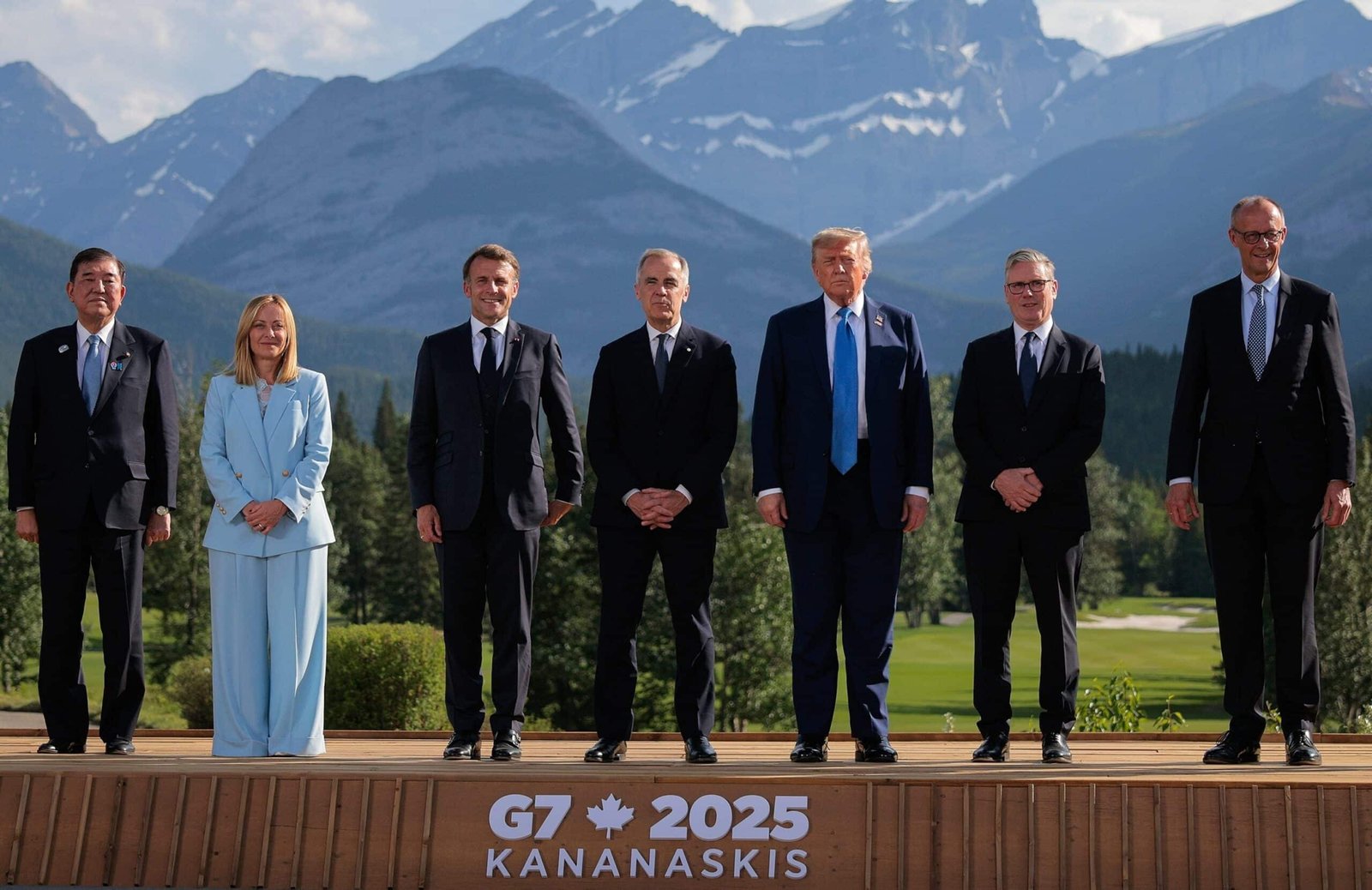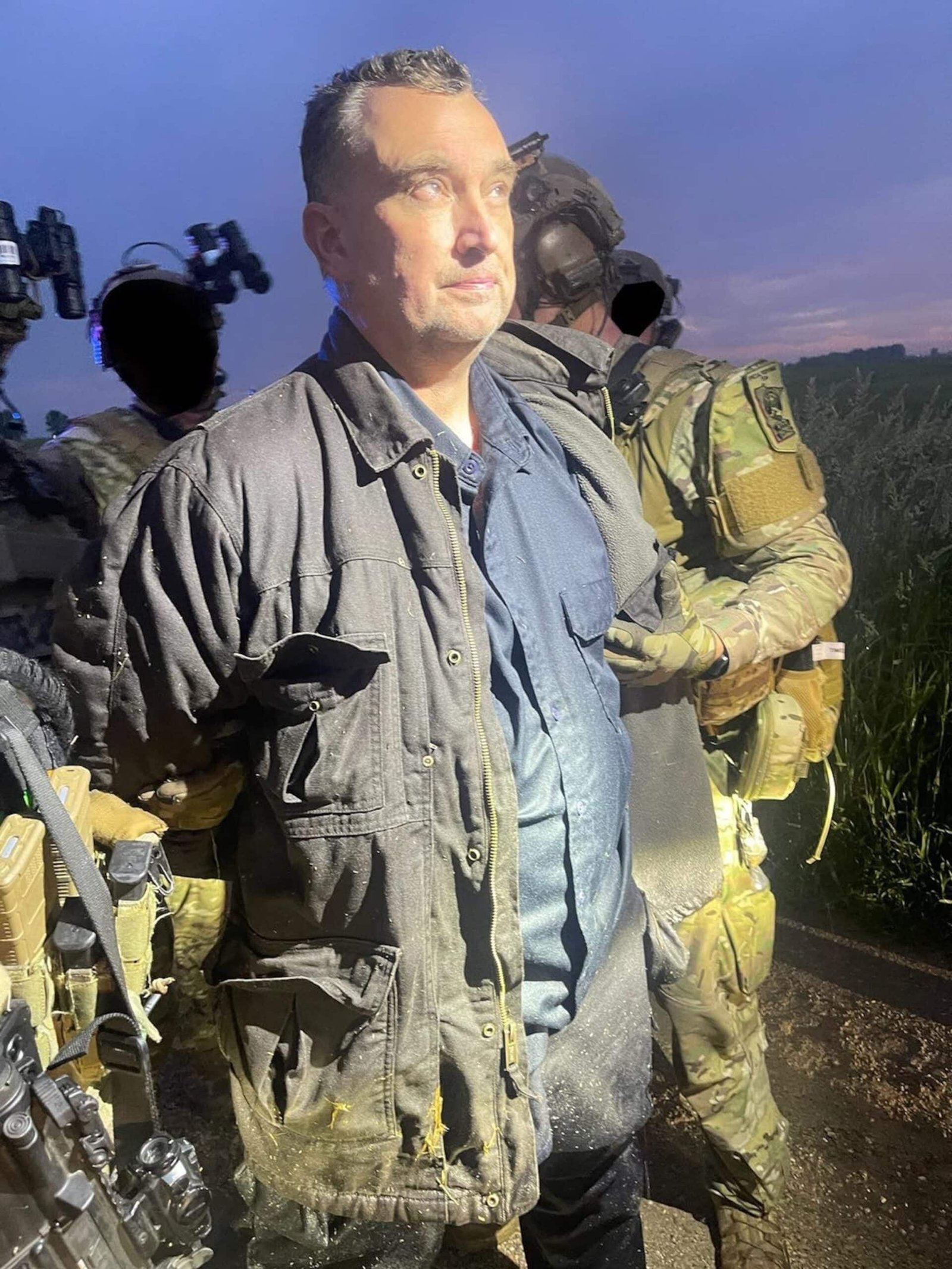President Donald Trump will leave the G7 summit in Canada Early “so that he can attend many important issues,” the White House Secretary, Karoline Leavitt said Monday night.
“President Trump had a great day in the G7, even signing an important commercial agreement with the United Kingdom and Prime Minister Keir Starmer. It was much achieved, but due to what is happening in the Middle East, President Trump will leave tonight after dinner with heads of state,” Leavitt published in X.
The schedule change will cancel Trump’s planned bilateral meetings with Ukrainian President Volodymyr Zelenskyy and Mexican president Claudia Sheinbaum. Nor will a press conference attend on Tuesday.
The announcement came after Trump published a warning in the warning of social networks “everyone should immediately evacuate Tehran.”

European Council President Antonio Costa, Japan’s Prime Minister Shigeru Ishiba, Italian Prime Minister Giorgia Meloni, French President Emmanuel Macron, Canada’s Prime Minister Mark Carney, US President Donald Trump, British Prime Minister Keir Starmer, German Chancellor Friedrich Merz and European Commission President Ursula Von It has for Family Photo During the G7 Summit, In Kananaskis, Alberta, Canada, June 16, 2025.
Somodevilla/Getty chip
Before his planned departure from the summit, Trump said he returned to the White House due to “very important” problems.
The president remained vague when journalists stepped on questions about the Middle East.
“You probably see what I see and I have to come back as soon as I can,” Trump added.

President Donald Trump arrives at his welcome ceremony in the group of seven summits in Kananaskis, Alberta, Canada, June 16, 2025.
Kevin Lamarque/Reuters
The earliest Monday, two US officials told ABC News that Trump did not intend to sign a statement written by world leaders at the summit that demands the de -escalation between Israel and Iran.
The draft undertakes to safeguard market stability, including energy markets and says that Israel has the right to defend themselves, according to officials.
An American official told ABC News that the president, so far, has not felt the need to sign the statement, since he has already publicly spoken about the ongoing conflict and made clear his position.
“Under the strong leadership of President Trump, the United States has once again led the effort to restore peace throughout the world. President Trump will continue working to ensure that Iran cannot obtain a nuclear weapon,” a White House official was asked about Trump not to sign the joint statement.
Delegations that represent the other countries will continue to work through the language in the hope of finishing a statement, according to a source familiar with discussions.
It is typical for leaders to release the statement that transmits a shared consensus. In 2017, Trump was the only G7 leader who does not support the Paris Agreement. At that time, the section on climate change acknowledged that the United States “was not in a position to join the consensus on these issues.”
The earlier Monday, Trump said Iran wants to “talk” about decallation as air attacks continue between Tehran and Israel.
Trump asked questions about the deepening conflict when he met with Canadian Prime Minister Mark Carney at the G7 summit in Kananaskis, Alberta, Monday.
“They would like to talk, but they should have done that before,” Trump said about Iran. “I had 60 days and they had 60 days. And on 61 I said: ‘We don’t have an agreement.’ They have to make a deal.”
“It is painful for both parties, but I would say that Iran is not winning this war,” Trump continued. “And they should speak, and they should speak immediately before it’s too late.”
The president of the United States would not comment on what would be needed for the United States to get involved militarily.
“I don’t want to talk about that,” Trump told reporters.

President Donald Trump arrives at his welcome ceremony in the group of seven summits in Kananaskis, Alberta, Canada, June 16, 2025.
Michael Kappeler/Pool/AFP through Getty Images
Trump told ABC News senior political correspondent, Rachel Scott, on Sunday that the United States was not involved in Israel’s military attacks against Iran, but “it is possible that we can get involved.”
Israeli Prime Minister Benjamin Netanyahu, in an interview with ABC News on Monday, argued that he was interested in the United States to support Israel while seeking to eliminate Iran’s nuclear program.
“We are not only fighting our enemy. We are fighting your enemy. For the love of God, they sing, ‘Death to Israel, death to America.’ We are simply on their way. And this could soon reach the United States,” Netyahu said.
Before the strikes began, Trump had publicly urged Israel not to hit Iran, stating that he could derail the efforts to ensure a nuclear agreement with the Middle East nation.
But his tone changed after the Israeli forces launched their attacks. Trump called them “excellent” and suggested that they would help to take Iran to the negotiating table.
On Sunday, he said that the two parties could have to fight, but expressed hope that a solution was finally reached.
“Well, I hope there is a deal,” he said before from the White House to Canada. “I think it’s time for a deal, and we’ll see what happens. But sometimes they have to fight, but let’s see what happens. I think there is a good possibility that there is a deal later.”



